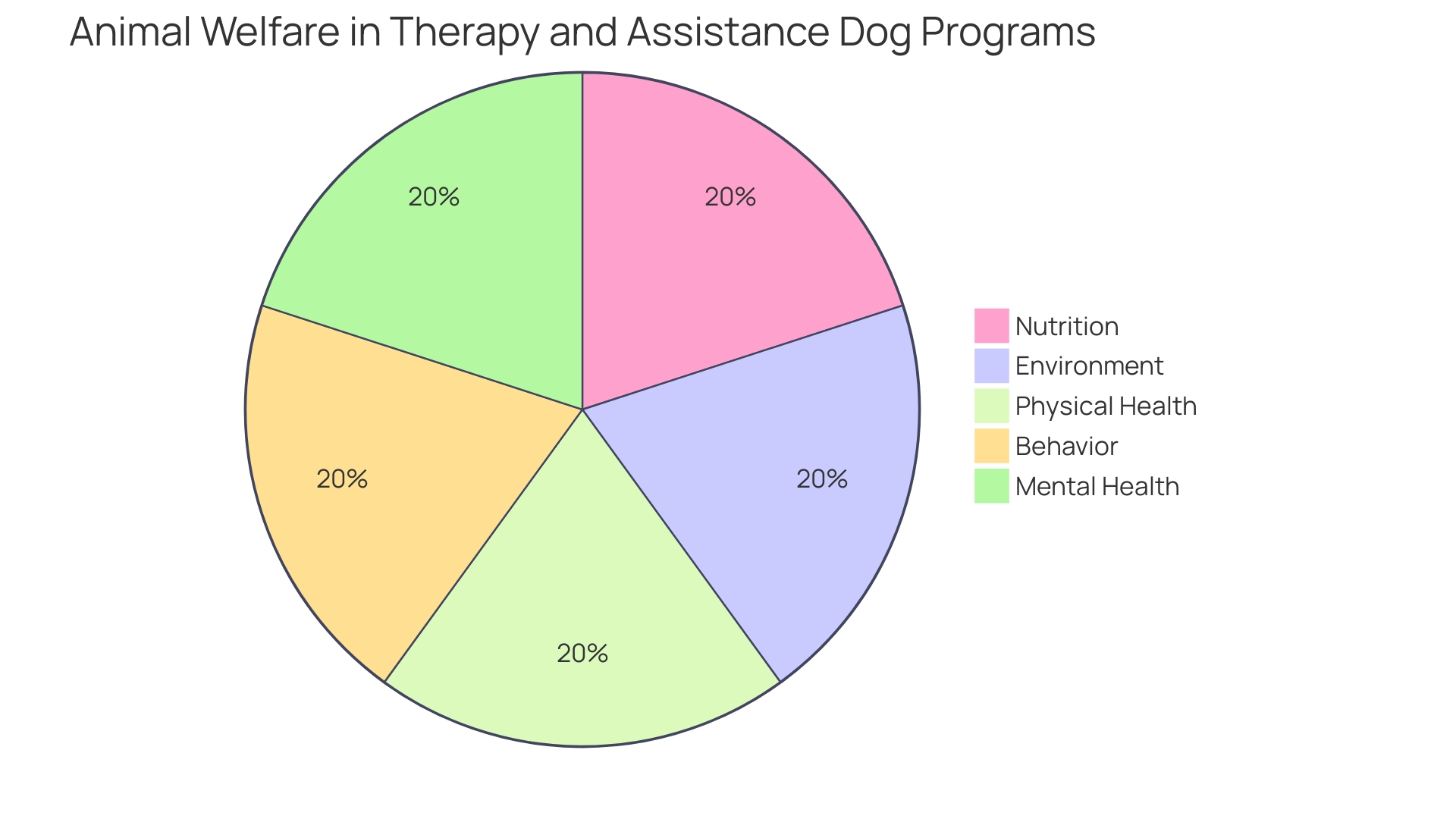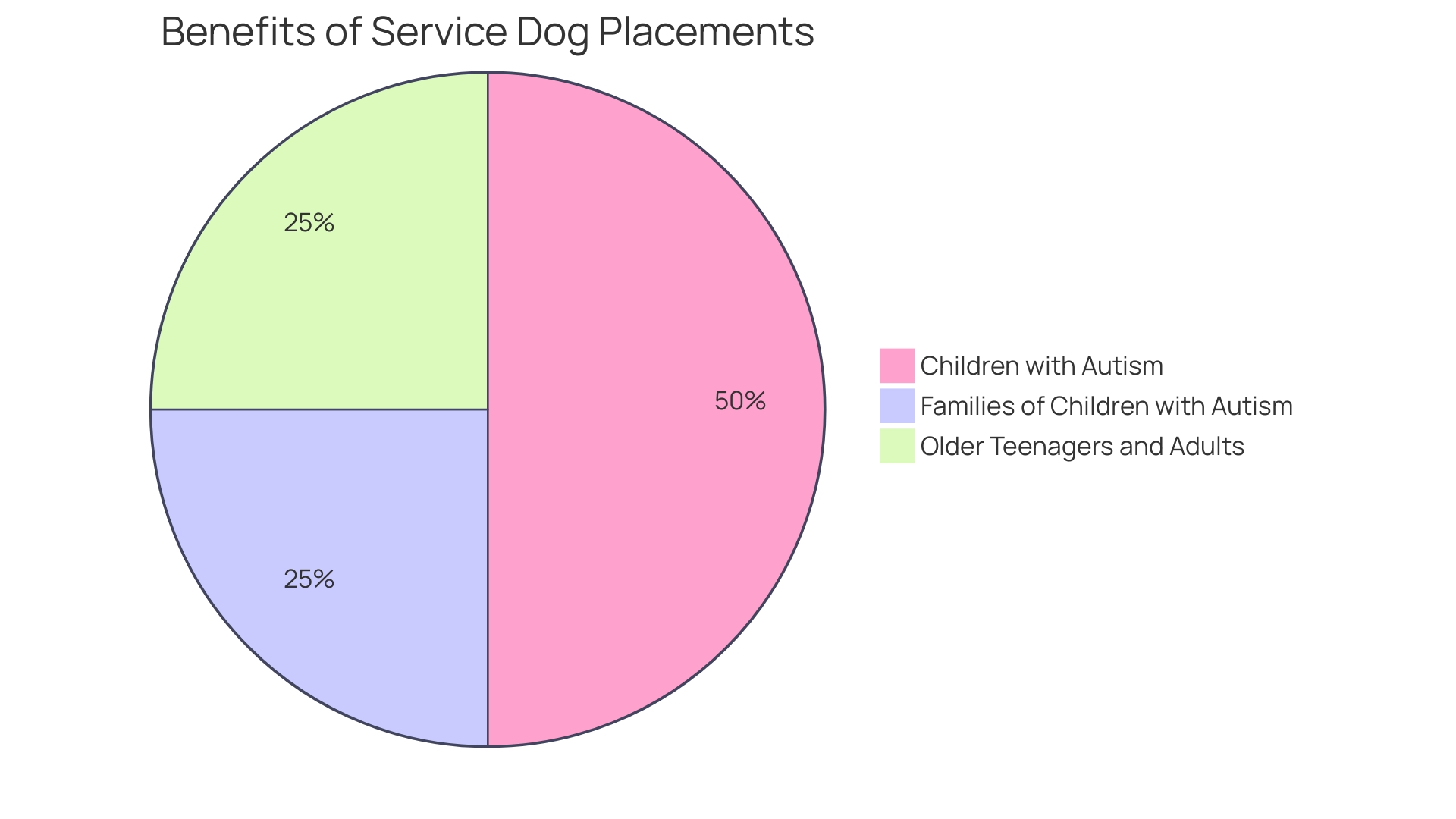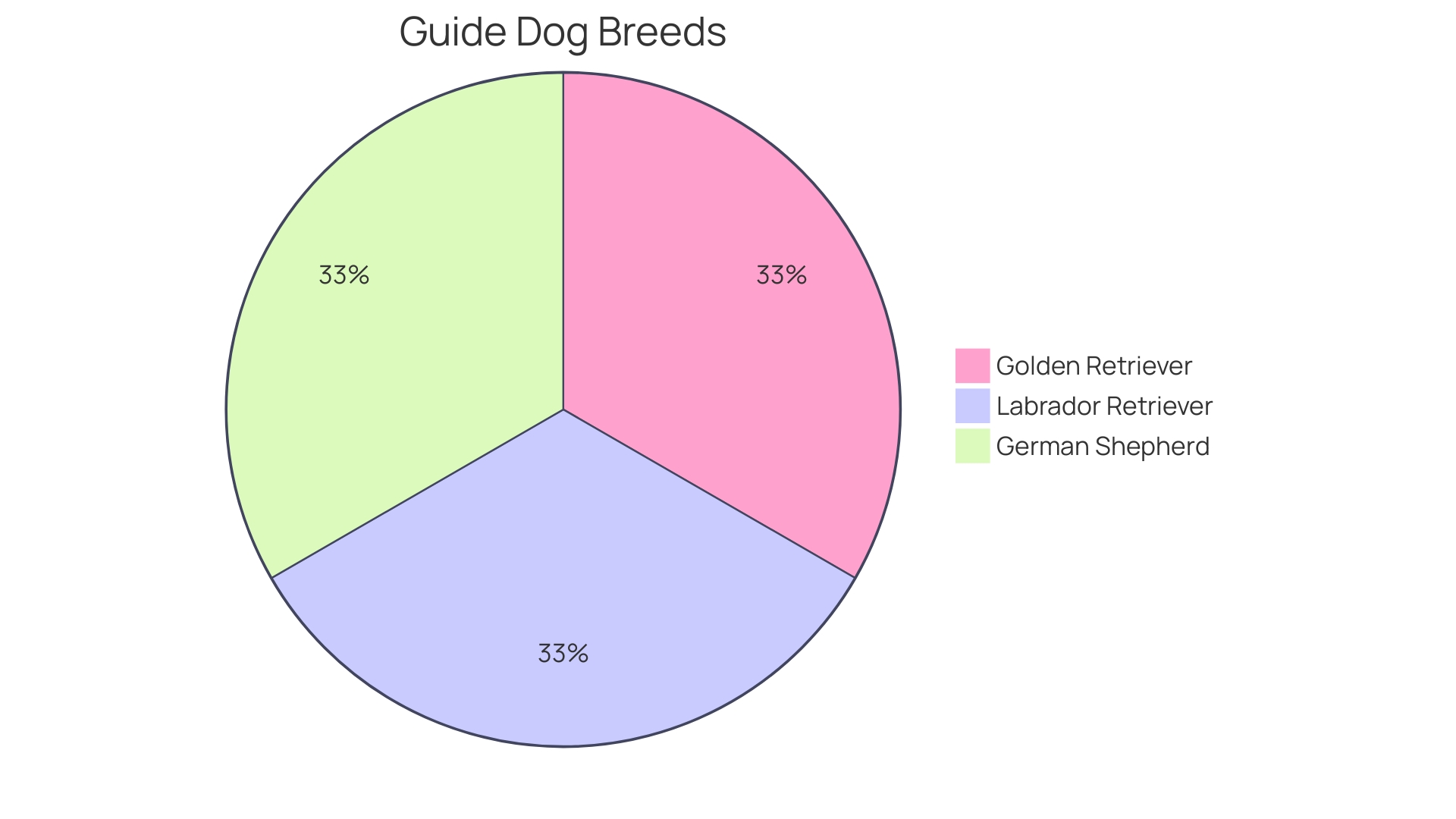Introduction
Autism in humans is a well-known neurodevelopmental condition, but did you know that dogs may also exhibit behaviors suggestive of autism-like conditions? Recent research has shed light on the similarities between canine and human behavior, highlighting the importance of understanding dogs' responses to their environment. From controlled laboratory studies to real-world applications, the insights gained from studying canine behavior have the potential to enhance our ability to care for and support our furry companions.
In this article, we will explore the fascinating world of autism in dogs and the impact it has on their well-being.
Understanding Autism in Dogs
Autism in humans is a widely recognized neurodevelopmental condition, and recent insights have indicated that dogs, too, may exhibit behaviors suggestive of autism-like conditions. Research into canine behavior has revealed that, similar to humans, dogs can be adept social learners and demonstrate sensitivities to the communications and actions of their human companions.
Studies conducted in laboratory settings have involved various dog breeds in treat-finding games, puzzles, and tasks that provide social cues from human informants. Through these studies, dogs' responses, ranging from choices made to their looking behaviors, are meticulously recorded and analyzed. These experiments are critical for understanding how dogs process information and respond to their environment, which can be particularly telling in dogs displaying atypical behaviors.
In addition to these controlled studies, real-world applications have also been explored. For example, service dogs placed with families of children with autism not only support the child but also bring benefits to the entire family unit. This emphasizes the importance of understanding canine behaviors and their potential parallels to human conditions such as autism.
The research in this field does not stand alone; it is part of a broader spectrum of interest in canine intelligence and behavior. Advocates and researchers alike are fascinated by dogs' capabilities, from their extraordinary olfactory senses to their complex intraspecies communication. This fascination is backed by data indicating that dog ownership rates have been relatively stable in countries like Sweden, the United Kingdom, and the United States, with the latter having one of the highest rates of dog ownership globally.
Furthermore, recent news reported in the journal Scientific Reports highlights the popularity of flat-faced dog breeds. Despite known health issues, such as breathing problems and increased risk of heatstroke, their 'cute' baby-like features continue to endear them to people around the U.S. This demonstrates the strong emotional bond between humans and dogs, which is an integral part of understanding canine behavior and welfare.
As we continue to learn about the dogs that share our lives, it's clear that each discovery not only enhances our knowledge but also our ability to provide better care and support for our canine companions, regardless of whether they exhibit autism-like behaviors or not.
The Role of Autism Assistance Dogs
Autism assistance dogs are not just pets, they are vital companions that can drastically enhance the lives of individuals on the autism spectrum. These expertly trained dogs perform a myriad of roles, tailoring their behavior and support to the unique needs of their human partners. For instance, they have a calming influence that can help mitigate sensory overstimulation, a common challenge for those with autism.
Additionally, these dogs assist in promoting emotional regulation, providing a consistent presence that can help diffuse anxiety and offer comfort. They also serve as social facilitators, helping to break down barriers and enable more meaningful interactions with others. The result is a life with less fear, expanded social circles, and an empowering step toward independence and self-reliance.
The success of these dogs in supporting autistic individuals and their families highlights the importance of equitable access to such resources, ensuring a fair and supportive environment for all.

Training and Tasks of Autism Service Dogs
Autism service dogs are not just companions; they are trained professionals that provide remarkable support to individuals with autism, tailoring their assistance to the unique challenges faced by each person. These dogs undergo extensive training, mastering basic obedience and specialized tasks to ensure they can effectively aid their handlers in navigating daily life. The dedication of these canines is exemplified by the story of Hank, a German Shepherd who, after rigorous training, has become an indispensable part of 10-year-old Harrison Brimner's life in Aliquippa, Pennsylvania.
Hank's impact on Harrison and his family earned him the 2023 American Kennel Club Award for Canine Excellence in the Service Dog category, showcasing the profound difference a well-trained service dog can make.
The training curriculum for these dogs covers a broad spectrum of skills. Golden Retrievers, for instance, are often chosen for this role due to their friendly demeanor and high intellect, making them adept at learning and performing the tasks required of them. The training is not only about following commands but is also designed to foster independence and self-reliance in their human partners.
The goal is to create less dependence on caregivers and to expand the social circle and sense of ease for individuals with autism.
Despite the rigorous nature of their training, there is a need for a critical evaluation of intervention research in the field. Studies have indicated design flaws that raise questions about the effectiveness and safety of interventions for autistic children and youth. It is crucial to address these concerns, as the quality of research directly impacts the lives of those with autism and the respect accorded to them.
In a broader sense, the contributions of service dogs extend beyond the individuals they assist; they also support entire families, enabling new activities and experiences that were previously unattainable. As we continue to study and understand the impact of service dogs, we look forward to more research that will not only highlight their benefits but also ensure the methods used to train and place these dogs are based on the highest quality of evidence and ethical standards.
Benefits of Autism Service Dogs for Individuals with ASD
Autism service dogs bring a transformative presence into the lives of those with Autism Spectrum Disorder (ASD), catering to a diverse range of needs and fostering a sense of independence. These specially trained canines are not just pets; they are skilled companions that provide critical support. They are a beacon of comfort, reducing anxiety and stress in various social settings.
Moreover, the presence of a service dog can enhance communication abilities, often serving as a social bridge to others. The tailored training that each dog receives allows them to meet the unique needs of their handlers, promoting self-reliance. For older teenagers and adults especially, the focus on independence is paramount, and a service dog can be a key contributor to living a less dependent, more fulfilling life.
These dogs do more than assist with daily tasks; they expand the social circles of their handlers and imbue them with a stronger sense of ease and self-esteem. The impact of these dogs is not limited to the individuals they serve but extends to their families, creating a more sustainable life for all involved. This nurturing relationship between a service dog and its handler exemplifies the profound improvements to the quality of life for individuals with ASD.
Emotional Support and Stress Reduction
Autism service dogs provide invaluable emotional support to their handlers, often sensing and reacting to shifts in their human partners' feelings. These canines have a remarkable capacity for empathy, offering solace and stability during intense emotional upheavals. Their presence can be a powerful source of comfort, helping to alleviate stress and anxiety for individuals on the autism spectrum.
Groundbreaking research highlights the profound impact these service dogs have not just on the autistic individuals they assist but also on their families, fostering an environment of understanding and support. The evolving roles of service dogs, from their early days as guide dogs for the visually and hearing impaired to the diverse tasks they perform today, reflect the dynamic nature of their service to those with various disabilities. As we delve deeper into the symbiotic relationship between service dogs and their handlers, we uncover how these animals are more than mere companions; they are catalysts for emotional well-being, enhancing the lives of those they serve through a bond that transcends the traditional pet-owner dynamic.

Social Development and Communication
Autism service dogs are proving to be extraordinary companions for individuals with autism, facilitating enhancements in social skills, fostering social interactions, and aiding in the development of communication abilities. Take the story of Hank, a German Shepherd Dog, who has had a profound effect on Harrison Brimner, a 10-year-old autistic child, and his family in Aliquippa, Pennsylvania. The presence of Hank has allowed the family to engage in activities which were previously not possible, highlighting the significant impact these service dogs have on the lives of the individuals and families they support.
According to recent studies, engaging and supporting children and youth with disabilities in various life domains is crucial for their mental health and equity in society. This is particularly true for autistic children who may also experience co-occurring emotional and behavioral problems, placing them at a higher risk of social exclusion. Service dogs like Hank contribute positively by assisting their human partners in achieving a sense of ease and independence, leading to a wider social circle and reduced reliance on caregivers.
The benefits of service dogs extend beyond the immediate aid they provide. They are trained to cater to the unique needs of their handlers, promoting a less stressful and more sustainable lifestyle. This focus on independence and self-reliance is echoed by organizations that hone the skills of these dogs to support individuals with autism in opening up their world and navigating it with more confidence and less fear.
The stories of these canines and their families underscore the critical role that service dogs play in not only helping individuals with autism but also in supporting the entire family unit by creating more equitable opportunities for social participation and development.
Choosing the Right Dog Breed for Autism Assistance
Selecting the right dog breed for autism assistance is not just about preference, it's a critical decision that can have a profound impact on the lives of individuals with autism and their families. The ideal breed exhibits specific traits that make them suitable companions—traits such as consistent temperament, suitable size, manageable energy levels, and a capacity for training. For instance, consider the story of Hank, a German Shepherd whose presence has been transformative for Harrison Brimner and his family, demonstrating the vital role a well-matched service dog can have.
Similarly, breeds like Golden Retrievers are favored for their balance of intelligence, trainability, and friendly demeanor, making them adept at navigating both the responsibilities of service and the nuances of family life.
While some may be drawn to the charming appearance of flat-faced breeds, practical health concerns such as breathing difficulties and shorter lifespans must be taken into account. It's crucial to consider the long-term commitment to the dog's well-being, ensuring they have the right diet, exercise, and veterinary care to thrive in their role.
Selecting a breed isn't just about assessing the dog's capabilities; it's also about ensuring a harmonious fit with the family's lifestyle and environment. Whether it's a large breed that can grow with a child or a smaller one better suited to apartment living, the choice should reflect a thoughtful balance of the dog's attributes and the family's needs. By prioritizing these factors, families can forge a powerful partnership with a service dog that not only meets the needs of the individual with autism but also enriches the family unit as a whole.

Case Studies: Impact on Individuals with Autism
Autism service dogs have been making a significant impact on their human companions for years, offering unparalleled support that extends beyond the children they assist to include entire families. Groundbreaking research emphasizes the value of these canine companions, revealing that their presence goes far beyond mere assistance—they are catalysts for profound, positive change. For example, a study marks the beginning of an in-depth exploration into how service dogs aid children with autism and their families, shedding light on the broader implications of these relationships.
The American Kennel Club (AKC) has observed that over the past decade, service dogs have become a substantial aid for individuals with disabilities. This mainstream acceptance is a testament to the evolving role of service dogs in society, from the early days when German Shepherds were primarily used as guide dogs for the visually and hearing-impaired, to a diverse array of breeds serving people with various needs today. The AKC is actively addressing challenges that arise from misconceptions about service dog training and their public access rights, ensuring that these essential animals can perform their roles effectively.
In Huntington Beach, California, the work of Debbie Pearl stands as a testament to the bond between humans and dogs. Debbie, who trains dogs for film roles, also runs a nonprofit organization that rescues dogs from euthanasia, turning them into therapy animals. Her story is a powerful example of how dogs, even those with disabilities, can have a tremendous impact on the lives of others.
Quotes from individuals who have experienced the benefits of service dogs firsthand offer a deeply personal perspective on their transformative effects. For instance, a veteran struggling to readjust after serving in Iraq found solace and support through a service dog, a story that echoes the experiences of many who seek comfort in their canine partners during difficult times.
As the conversation around autism and disability evolves, so does the language used to discuss it. Some prefer 'identity-first' language, while others opt for 'person-first.' It's essential to respect and acknowledge the preferences of individuals within these communities.
The Disability Language Style Guide is an invaluable resource for navigating these nuances, though it is important to note that the guide is hosted on external sites with different policies.
The potential for service dogs to support individuals with autism is immense, and the shared stories and data underscore the critical role these dogs play. As research continues to unfold, it is clear that service dogs are not only companions but also integral to the well-being and development of those they serve and their families.

Challenges and Considerations for Autism Assistance Dog Owners
Autism assistance dogs provide invaluable support, but it's crucial to understand the practicalities involved with such a commitment. Financial considerations are often the first hurdle; the cost of acquiring and maintaining an assistance dog can be significant. Training is another key aspect, requiring dedication to ensure the dog can adequately support its owner's needs.
Legal rights also play a role, as recognized by the Americans with Disabilities Act (ADA), which affords protection to individuals with disabilities to be accompanied by their service dog in public spaces.
Despite these protections, challenges such as public misunderstanding persist. For instance, service dogs are allowed in most public places, but there may be times when they can be legally excluded, such as if the dog is not housebroken or if it's behaving uncontrollably. Owners must also navigate the complexities of housing rights and the workplace, where service animals must be accommodated as a reasonable provision.
Moreover, recent news highlights the complexities of autism assistance dog adoption. A decision by the Ontario Human Rights Tribunal deemed a dog rescue's policy of not adopting out to families with autistic children as discriminatory, underscoring the importance of individual assessment over blanket policies.
The benefits of an autism assistance dog are manifold, including fostering greater independence and reducing reliance on caregivers. The dogs are trained to perform tasks tailored to their owner's needs, often leading to a more confident, autonomous lifestyle.
Statistics show that pet ownership is a common aspect of many households, with a significant number of families including dogs. With the right support and understanding, autism assistance dogs can be integrated into these homes, enhancing the quality of life for those on the autism spectrum.
Owners of autism assistance dogs must address these challenges with resilience and resourcefulness. It is the responsibility of society and those within the disability community to dispel myths and provide clear information about the true nature and rights of assistance dogs. By doing so, we can ensure a more inclusive and supportive environment for all.
Conclusion
In conclusion, studying autism in dogs has revealed fascinating similarities between their behavior and that of humans. This research enhances our ability to care for and support our furry companions. Autism assistance dogs play a crucial role in supporting individuals on the autism spectrum, providing calming influences, emotional regulation, and social facilitation.
They positively impact not only the individuals they assist but also the entire family unit.
The training and tasks of autism service dogs are extensive, promoting independence and self-reliance in individuals with autism. These dogs provide invaluable emotional support, reducing stress and anxiety. They also aid in social development and communication, fostering social skills and interactions.
Choosing the right dog breed for autism assistance is crucial, considering temperament, size, energy levels, and trainability.
While there are challenges for autism assistance dog owners, the benefits of fostering independence and reducing reliance on caregivers are significant. With the right support and understanding, autism assistance dogs can be integrated into households, enhancing the quality of life for individuals on the autism spectrum.
In conclusion, the research and stories surrounding autism assistance dogs highlight their profound impact on individuals with autism and their families. By continuing to study and understand the role of these dogs, we can create a more inclusive and supportive environment for all.




